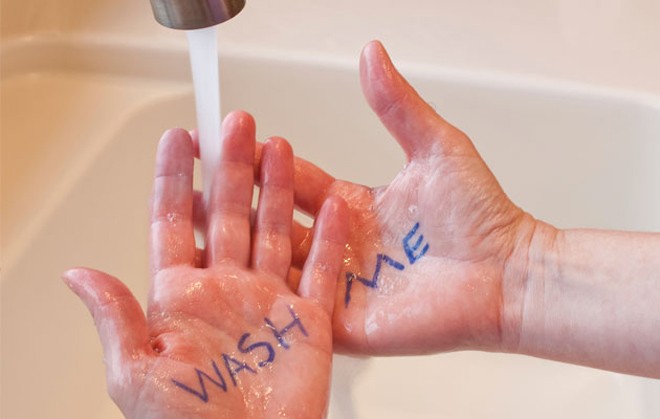
A self-diagnosis of what ‘appears’ to be a mild form of the disorder downplays the seriousness of it and trivialises its extreme forms that many people go through

The term OCD (Obsessive Compulsive Disorder) is often tossed around casually when people self-diagnose themselves with it. They use their need to, for instance, organise or clean as a measure of their problem.
Not to discredit the fact that someone might truly have an OCD but such a self-diagnosis of what appears to be a mild form of the disorder downplays the seriousness of it and trivialises its extreme forms that many people go through.
I, myself, have an intense form of OCD and it does not entail merely putting objects symmetrically or keeping the volume of the channel at an even number. It hampers my daily functioning as I need to obsessively perform a list of elaborate ‘rituals’ that would soothe my anxiety, the least form being washing my hands at least two times every time my hands ‘feel’ dirty. (A clarification: ‘dirty’ here does not refer to the conventional meaning of the word, such as having my hands steeped in mud; it involves washing my hands after a handshake with an individual I do not like.)
My OCD, at one point, had aggravated to such an extent that the skin on my knuckles had eroded by washing my hands innumerable times (that, too, with a hand wash that is produced with several chemicals) and yet, I continued to do so, even though I had a burning sensation on my flesh, just because I was compelled by my anxious thoughts.
Not until very recently, the anxiety also manifested in mild panic attacks that involved breathlessness, nausea and a feeling of dying at the spot.
The reasons as to why my anxiety (otherwise a common feeling) had escalated to such extremes are intricate and, more importantly, very personal to outline here. However, I will mention being at the receiving end of ‘bullying’ as one of these.
Several people endure bullying, physical and domestic abuse, divorced parents, rejection from society or any traumatic experience that severely marks them but their need to seek help often never materialises. This is prevalent amongst teenagers or young adults, in particular, who are mostly dependent on their parents and cannot actively seek professional help since it is, one, looked down upon by the society at large, and two, never considered a crucial problem.
This leaves such individuals spiralling in their problems without being able to improve their condition or get out of the never-ending cycle altogether.
My purpose for talking about this is not to gain sympathy or help from those around me (or attention, as many naively consider an expression of such problems as attention-seeking behaviour). It is only to bring forward a concern that is still locked up in a cage and not dealt with as it should be. Especially in today’s world that is developing into an isolationist one, where at least I have noticed a growing number of people undergoing unhealthy levels of anxiety; almost every other person I meet in college has some form of a disorder or experienced depression (again, a medical condition that is so frequently used that it has lost its weight and significance) to the extent of them attempting suicide or, in more hopeful cases, going for therapy.
A couple of my friends have even been diagnosed with clinical depression, which is different from regular depression. Such a state of mind is, evidently, the result of a series of negative experiences throughout their lives that are unresolved and pile up, manifesting themselves as an overwhelming anxiety.
Individuals should keep an eye around them, for anyone very close to them might be going through a condition that needs to be tackled through professional help. Seeking professional help does not necessarily entail heavy medication; resolving such issues frequently entails the patient talking about their issues in life and reaching a deeper level of self-understanding and self-awareness.
OCD and the likes of it are for real. They are not made up. If anyone doubts their child, friend or relative’s concern that they have a certain disorder, instead of shunning them, the least they can do is to have the individual diagnosed by an expert. You may be right, but chances are you might be wrong.